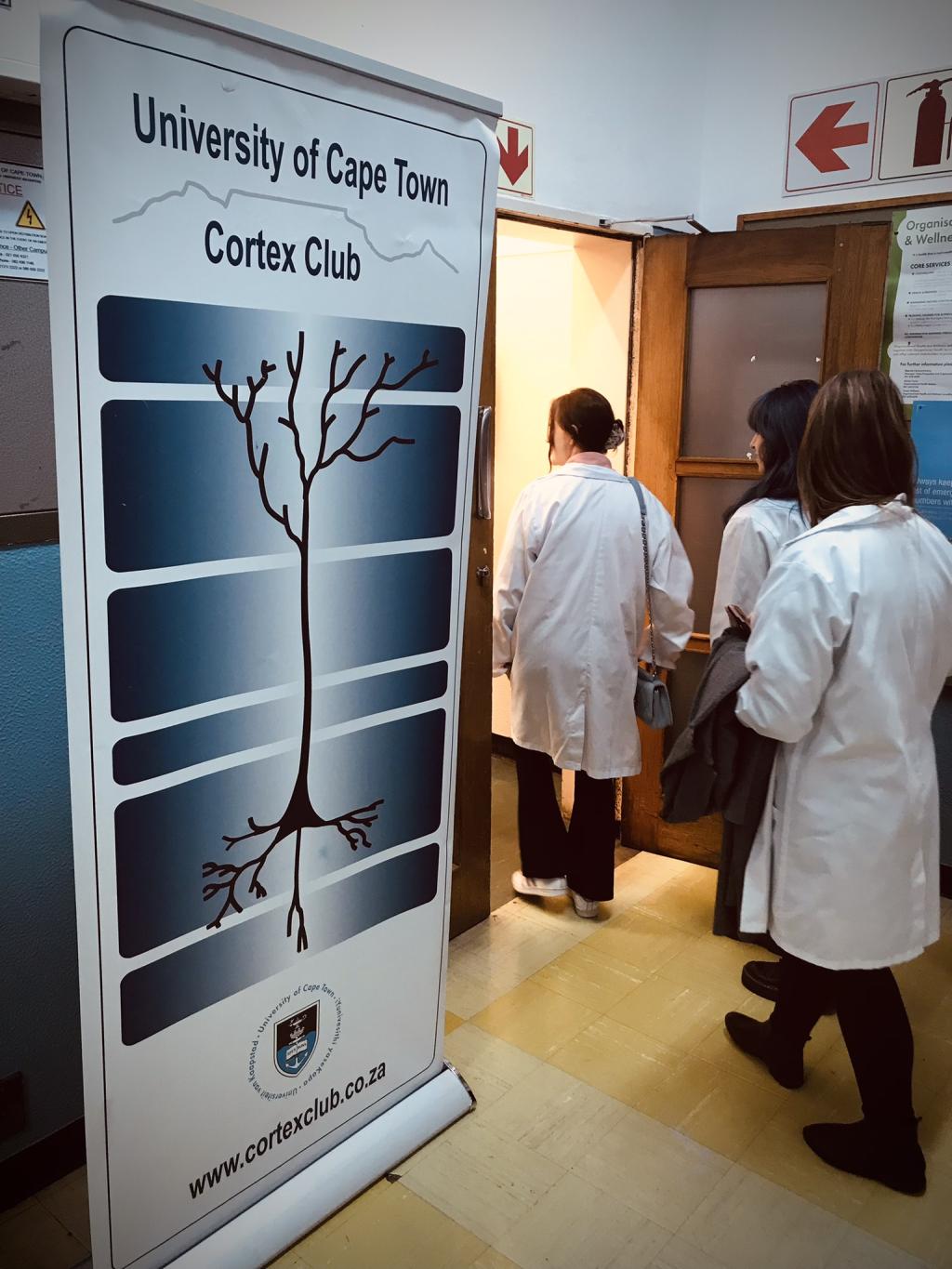How to have an existential moment

The chance to hold a human brain in your hands is pretty polarising, with some baulking at the thought. But for those who jumped in line it proved to be a profound experience. No organ quite summates to a human life as much as the brain. It is, after all, responsible for our ability to speak, move, think, and feel, all in its sub-2kg of mass.
This was the opportunity created by the UCT Cortex Club and Dr Adhil Bhagwandin, of the Division of Clinical Anatomy and Biological Anthropology in the Department of Human Biology and UCT’s Neuroscience Institute, on the 5th and 6th of October 2022. And what an experience it was! The brains appeared smaller than I expected, held easily in both palms of my hands. They do shrink in the preservation process, as water is expelled from the cells, but even so their size makes the magnitude of how much they accomplish all the more striking. ‘Size differences don’t equate to intelligence’, Dr Bhagwandin reminded us. Einstein himself famously had a below average sized brain.

No photos are allowed in the dissection halls as it would be in contravention of the Human Tissues Act and thus highly unethical, so you’ll have to rely upon my best description. The dissection halls have harsh fluorescent lighting, ideal for dissecting but not the most flattering. For those who hate change-room lighting, perhaps donating your body to medical science isn’t for you. That said, what a monumental and significant thing to do upon death. To see with how much respect the participants treated each specimen really acknowledged the sacrifice each person had made in the spirit of learning. UCT only accepts cadavers from people who have given their consent to have their bodies used in this way. It also incidentally, makes your costs of dying much cheaper as the university covers everything to do with transporting and cremating the body (once the dissections are done). So for those of you okay with a bit of unflattering light, check out UCT’s body donation programme here.
The smell of formaldehyde was an acrid reminder to keep my gloved hands from touching my face absent-mindedly, making me very present, conscious of every movement and every thought. In some cases bits of brain were submerged in containers and in other cases were plastinated and simply resting on the counter. We saw everything from sawed-open skulls to the meninges (the tissue that covers the brain and anchors the blood vessels) and each bit potently represented a whole life lived. The experience was visceral and meaningful in many different ways. ‘It’s surreal’ said one participant, another excused herself as she had ‘an existential moment’. On the other end of the spectrum it reminded someone that we’re really just meat, we’re no different to pigs - the significance of which is something uncomfortable to ponder.
The audience was not just filled with budding neuroscientists, there was someone from the economics department, another studying English (Hamlet much?). The brain really is an all-encompassing and moving concept for a much broader audience than those directly studying it, much to the delight of this science communicator. The event concluded with pizza and drinks (thankfully in a separate venue) and there are plans to repeat and expand on the event for next year. So if this sounds like an experience you’d like to, well, experience then sign up to the UCT Cortex Club in 2023 and come along. I can promise it will be many things, some of them extraordinary.
